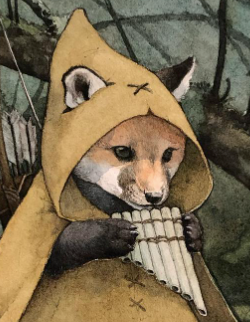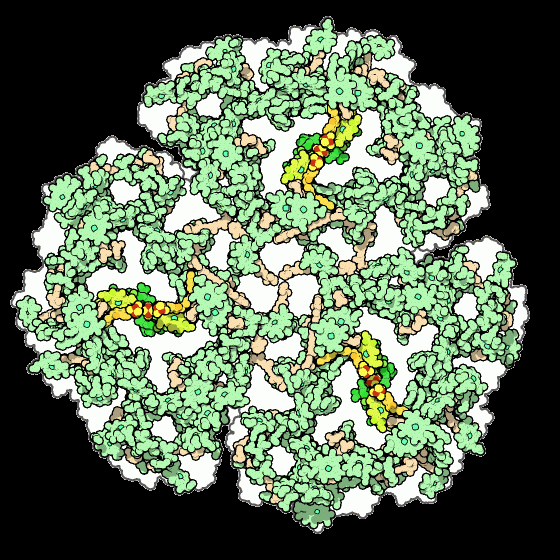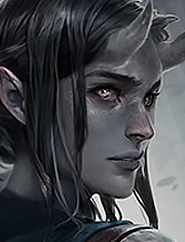So there are parts of it that I really like. The focus on dreams and the horror in them was super cool. I like hearing about the world and the different cultures and how different everyone speaks and dresses. I have liked the character development too, especially Perrin's. I actually felt like I related to his wolf stuff as a trans person.
But hooooooollllyyy shit how about a cis het sit down honey you need to fucking relax. Men and women aren't seperate fucking species you nonce. Also why can no one ever say what they mean?? In general but especially men and womens interactions are like halfway between a conversation and a discussion of platonic forms. I can't fucking handle it. It's bad enough that he can't seem to describe women without first establishing their relationship to men, and that he sees liking men as a moral thing, and everything I've mentioned so far.
But when Mr. Jordan decided to include dom/sub dynamics into THE FUCKING MAGIC SYSTEM I sincerely ragequit. FOR FUCKS SAKE. Not only that but a woman having to ask a man is treated like its a degrading, dishonorable thing, and the women who just sorta ask and want things like affection and sex are seen as strange and other! A woman flirted with a man you haven't even confessed to and you are contemplating kidnapping?? Murder??
AAAAHHHHHHHHHHHHHH
anyway the books really are neat but I am 50 shades of gay and I don't think it's going to get any better. Maybe when sanderson takes over it does but those are just the last two books soooooooooooo. I guess I could read summaries and then go to the last two books but I could also just read another series, considering red rising or malazaan book of the fallen. or kingkiller chronicles.
AAAAAAAHHHHHHHHH
if anyone does want to vouch for it feel free, I'm already feeling pretty stockholmy
I'll be real with you, none of the things you're complaining about are going to get better and if my memory is right, some of them will get significantly worse. WoT's gender dynamics read like Jordan had probably been raised with a very patriarchal view of the world, encountered feminism in his adulthood, tried to honestly grapple with it and his own biases, but didn't completely succeed and came to some weird places. I don't think there's a single reader of the series who hasn't at some point been baffled and frustrated by its gender politics, as if they were designed to piss off everyone.
Though I did once read an interesting defense of it where the writer proposed that Jordon was honestly trying to portray a Matriarchal society, not in the blunt and obvious way where women would always be in charge, but in the subtler way where an inherent assumption of female superiority in the social hierarchy colors the thoughts and attitudes of every character, so they wind up believing ridiculous things and acting bizarre in ways that we would think of as normal if the genders were reversed. Maybe there's some truth to that, but it's been a long time since I read the books.
I actually personally buy into the idea he was trying to do a bit more of an egalitarian society but failed because of his biases.
I do think the setting starts with the premise of "what if original sin but it was the dude" and then kinda runs with it. The magic system needed to be different for it to work thematically but the sub/dom stuff is not real defensible.
Spoiler:
spoiler
For what it's worth the book has characters who are reincarnated as the opposite sex and still use the original side of the source they channeled with a fairly nebulous argument about it being linked to the soul and I've seen some fairly generous arguments that it was meant to be trans positive. This is weakened by the characters, imo.
He strikes me as well intentioned but the execution is problematic.
edit: Also none of the stuff that bothers you now gets better.
Women have a lot of social power. Everything seems to happen the way that women desire them to. Men are never really made to believe that they are in full control of their personal lives and that women are constantly making the real decisions. There is constant tension because of it, but ultimately men are unable to think outside of the immediate moment and women work together, leading to men being led around by women.
The Aes Sedai in the book seem to be idealized ideas of what women are, scheming, aloof, difficult to understand, but with good intentions (most of the time). Their ethereal, ageless beauty and the way that women deify them supports this as well.
Societies led by women are considered more moral in the books, those that push women down are chastised, and seen with contempt and anger.
It feels like he believes that women are meant to be in charge and that a matriarchy would be a good thing, but ultimately has no idea how to reconcile that with his own manhood. Men constantly desire to control women, or fight against them for no other reason than to feel manly, or because as men they feel like they ought to. It's like he is airdropping men and women from the modern, western, world into a society with matriarchal gender and social relations without taking any time to wonder how people in this society would actually behave.
I believe this is why he focuses so much on the sexual/romantic aspect of women. Women's desires for men are the only thing that men seem to have going for them in the book. Those women, especially aes sedai, who love men are seen as more trustworthy. The idea of an Aes Sedai who isn't forced into loving men through her sexuality is horrifying to Jordan, hence his portrayal of the reds.
The tension caused by Jordan's baby feminism is clearly, to me, with good intention. He clearly has a respect for women, but fears them. In a way I recognize from my past life as a man. But the way it permeates the book is just too exhausting for me. Even as a marxist-feminist I think that if I was cis het I would be able to make it through the books, but as a trans lesbian its just too much. The books clearly make no room for trans people and lesbianism would be treated with extraordinary mistrust. He'd probably make all the women jealous of the gay women and all the men feel completely emasculated in a lesbian's presence. I have a hunch that the Aiel's gender dynamics would be the best so far but I just don't want to trudge my way through this forced quagmire of gender politics my very existence undermines.
Based on what I wrote I think that the defense you mentioned has some truth, he just didn't change the people as much as the society, hence the tension.
The Aiel are pretty well covered culturally by the end of book 5, if you want to stick it out. Not really sure gender dynamics are so much better there, but as a cishet man I'm sure don't have as clear a perspective on that. (The historical stuff in there is cool enough that I'd personally argue it's worth suffering through another book or two, since you're not too far from it now. I won't explain what I mean, but it's really cool.) But as others have mentioned, all of this stuff you're talking about only gets worse, especially in books 8 and 9, at which point I remember being incredibly frustrated and wanting to shake the characters and be like "GO TALK TO HER/HIM FOR FUCK'S SAKE; YOU ARE ON THE SAME FUCKING SIDE HERE!" And I was a sexist teenage cishet boy at the time. So...yeah.
Edit: Oh, one more thing: there are hints of lesbianism in the White Tower, not sure if you've seen them yet, but they do exist.
Well, I'm glad that the Aiel stuff is as cool as I was hoping it to be. I might keep reading through book 5 but honestly I think that if I did that it would just make it harder to put down. There might be some youtubers who have put out some good WoT content that would be worth a watch.
“GO TALK TO HER/HIM FOR FUCK’S SAKE; YOU ARE ON THE SAME FUCKING SIDE HERE!”
I'd probably pop a blood vessel
I will say that all of this was less difficult to handle when I re-read it recently. I guess because I knew it was coming, and I kinda just relaxed and expected the plot to crawl along in books 7-10, and knew that the men and women were going to stubbornly refuse to actually talk to each other and thus make unfair assumptions about each other's motives and goals and actions, it wasn't as hard to handle as it was when I read it the first time. Not sure how useful that is for you, though.
Edit: To borrow a phrase from Sanderson, you gotta put journey before destination with WoT. The destination isn't bad, but the series is all about the journey to get there, you know?
A bit late, but just going to chime in that I'm 99% sure the reasoning behind women being in power is just "what if original sin was done by a man?", as Runcible notes below. The cultural norms being "western world in matriarchy land" also sort of make sense if you consider that the original sin took place after patriarchal societies (and the associated norms) had already developed.
It does not get better.
I actually know a guy who reminds me a lot of Robert Jordan - raised by a right-wing family, used to love Rush Limbaugh, very conservative worldview growing up. His views underwent a lot of shifts as he got older, and now he's an unabashedly pro-gay, pro-trans commie adjacent. He's a good guy for the most part, but he has a few brainworms he has yet to fully purge, and whenever he writes gender dynamics (he's a fiction author) it can get very Wheel of Time-esque. I'd go so far as to call it his (and Jordan's) squid in the mouth.
Men and women aren’t seperate fucking species you nonce
You have to suspend this part for sure, but in the books they kind of.....are?
The book takes place in a fictional world with two types of magic that are accessible depending on someone being a man or woman.
This is a lazy fictional system and filled with contradictions (as are many). You have to just lazily accept that in this world men and women are biologically different.
This particular "shortcut" can be particularly offensive because the dichotomy it forces (men and women are very different) is aligned with the same split that people try to make in our nonfictional world to oppress folks.
But if you approach the books as if they're lazy writing they are fun in my opinion and I was able to get past it. If it's too distracting for you then as others say it does only get worse. The magic system is a main driver of the narrative and there are definitely two sides to it. No more and no less.
I liked the books but the man/woman stuff is by far my least favorite part of them so I completely understand where you're coming from.
As someone who grew up with TWoT, I saw it's sexist tones as mere eccentricities when I was young.
Now it make me wanna toss the whole series from library. It just goes on, and on, and....ON...over the same shit. It's fun, but I can't recommend it in retrospect.
W/E, I still enjoy Brandon Sanderson. Stormlight Chronicles life!
Once again I am pushing the Commonweal and its magical Soviet Polycule in books 2 onwards.
The weird gender essentialism doesn't get better, I'm afraid.
Honestly the guy who completed WoT, Sanderson, a Mormon, has far, far better treatment of LGBT and non-neurotypical people in his own work than anything in Robert Jordan's stuff.
The Commonweal, by Graydon Saunders, is a semi-self published series of novels that have garnered great acclaim from the Left/Left Liberal SF writing world. Noted Fans are Stross, MacLeod, etc.
It's a loosely connected series of books that take place in a 400 Year old Revolutionary Republic in a universe (possibly ours, history gets rewritten a lot and there may have been a total extinction event and reset.) Entirely dominated by sanity-lacking mage kings, established after one of the more isolationist God-Kings found out collective magic is stronger than individual magic, used it to make a clone army and magic railguns, killed all his rivals, and having done so disappeared, possibly back to an isolated mad wizard tower.
This posed a bit of an issue as now all the former subjects had to work out how to rule themselves. So they made a giant collective geas and bound themselves to it, and triple-bound the few captured Wizards sane enough to read the writing on the wall. The series mostly focuses on an isolated rural backwater, populated by a sub-species that hates mages even more than the normal population, and were already independent.
The main themes are a) How does a Socialist Republic in a hostile world get itself into the future b) What kind of people live there (and what kind of people are able to integrate with that society) c) What do you do when your socialist society has near-gods as ordinary citizens, like the previous ruler, who ruled in terror for 25,000 years as a giant spider (in order to put commoners at ease with a nice friendly non-lovecraftian form) and is now in the shape of a kindly grandma (Most people preferred the spider)
The main issue with the books, and why they're not with a major publishing house despite every SF editor on the planet liking them, are a severe lack of infodumps (some of the info above isn't really clear until 3 books in, though none of it are spoilers and you can infer it early on.) and a commitment to the bit of it being first person translations of a constructed revolutionary language with decimal time (a Decade is 10 days), gender-neutral language, and other idiosyncracies. In the words of one reviewer it "Makes a valiant attempt at being written in English". There's also a lot of civil engineering.
Here is Book One (which is a deconstruction of Military Fantasy and sets up the main series plot and Book Two (a deconstruction of magic school, with said magic school being a graduate program for "Chosen Ones" in a world where they tend to detonate and leave a large hole in the continental shelf before age 25)
Thanks! I read it as Commonwealth and that didn't give the correct results.
Good books, but really hard to read. First time I've to use dictionaries in a long time.
Neat world building, but having the Captain be from a wished upon bloodline is trope-y.
Also a few more words to explain stuff and do fully sentences wouldn't hurt. Still excellent reads.
Yeah, though the Captain isn't from a bloodline, he's basically an Uruk-Hai and that gets fleshed out in...book 4 I think.
The prose does get a bit better after book 2, when he gets himself an editor unafraid to take the razor to his prose.
Yeah, it also feels as if in book 1 there are pages where friends did read over it and it is slightly more readable. Still enjoyable though. Had a look at book 2 and the difference does show. Doesn't feel as if it diminishes the style, though.
The gender essentialism doesn't change until Sanderson takes over but even then it just gets toned down. Until then Jordan's BDSM fetishes will continue to leak at the seems. Sanderson can't undo anything that has been written into the universe but he will just go around and be like "oh yeah, they're gay. Couldn't you tell? ".
Idk, I enjoy fantasy culture stuff in there, gender dynamics is whatevs (but also majority of the stuff is young people interactions). if they bother you they wont get better
malazan is good, go for that instead.
i gave up on wheelie of dime 18 years ago on book 7
Malazan is amazing in a ton of ways, and I do recommend it. Lots of great character who happen to be women (as opposed to WoT, where the great women characters are great BECAUSE of their 'women' traits), as well as gay/bi being treated as 'normal'.
Compared to Wheel of Time, the author of Malazan (who is an Anthropologist) has stated that the world is generally egalitarian because of magic; who gives a shit about men vs women when either could maybe fireball your ass.
But, I will say that it has a pretty big TW for sexual violence on, like, the whole series. Which, if that sounds somewhat against the above statement, it kinda is? I've seen some people hold Malazan up as feminist, when that's only really true compared to the bulk of fantasy, which is more of a condemnation of 'fantasy novels' imo. Also, there is some 'bury your gays', there's also just, almost no romance that ends well for anyone on screen, so it's arguably more excusable.
If it is interesting there is a knock off series called "the sword of truth" that apparently got popular but seems wildly worse in most ways, but was cheaper so it got a show someplace.
It has more of all the things you hated and weird libertarian views besides that. I remember multiple people doing a rifftracks style hate read of it but I think that project died. Still wild memories
Since we are at it, any opinions on Joe Abercrombie’ books? He’s been my favorite author for quite some time.
Huge fan of The First Law; I love Inquisitor Glokta as a character. I've liked some of his other books I've read, but they haven't gripped me the same way as First Low.
I hated the ending of First Law when I read it as a lib, but I've seen some complaints about politics in the followup trilogy by chuds, which makes me think I should go back and give it another chance.
Oh and you do get at least one person who's "trans" in a way.
I dont think this counts as being trans:
One of the forsaken that gets killed by the greenman in the first book was a lecher so the dark one thinks its funny to resurrect him as a big booby babe as punishment for dying like a chump. "He" still has access to the male half of magic so he's essentially a m trapped in a woman's body.
glad i've never tried to read these now. that would drive me insane. that sounds sincerely unhinged.
I read all of it and remember very little of it. Fantasy slop I guess. What surprised me is how the author managed to get away with blatantly copying the LOTR in the first book.
I wouldn't say that's fair at all. WoT distances itself a great deal from LoTR. The only similarity is the wizard coming to the small village to find the unlikely heroes. But the heroes themselves, the wizard, and the circumstances of their arrival are vastly different.
The story structure and how exactly the party got divided up when it was split into different arcs was also extremely similar. Like beat for beat it felt like it was just LotR with the details changed around at least until later on, like it was started from an outline boiling down the scenes and progression of LotR into vague summaries and then expanding on those.
Like it even had not-ring-wraiths, not-orcs, and not-gollum on top of that.
I don't know the actual history of how Robert Jordan went about starting the series, but it wouldn't be surprising to learn it began as just like a straight up genre exercise that got fleshed out and turned into its own thing in the same way the Dresden Files began as just like a genre writing exercise when the author was in college (IIRC).
I had forgotten the breaking of the fellowship in WoT. I guess I just see them as tonally quite different. The feeling that LoTR gave me was so much different than WoT I didn't properly think of the plot similarities. I guess I don't care about plot so much? Mostly just the themes and characters and world.
Rand being the hero instead of Frodo and the fellowship hating moirane are huge differences that aren't strictly plot related, and are more what I was thinking of.
It's also at least somewhat intentional. The books are very tropey across the board, but the in-universe explanation for that is that these events are the ones that inspired all the subsequent tropes and cultural myth-making of our world. The guy was genuinely pretty well read in world mythology, and sets up lots of references--some subtle, some not-so-subtle to other books, legends, and religions.
Wizard saving the unlikely commoner heroes from the black riders chasing them? Then they all develop to be remarkable characters with the ring bearer, sorry, dragon reborn, being the key to defeating evil. IDK sounds basically the same, but most of the books were decent and I don’t regret reading them.
Squinting my eyes from the international space station and wisely proclaiming that all land forms are essentially the same.










